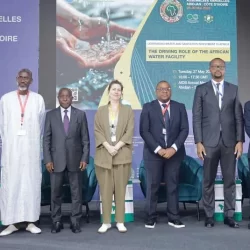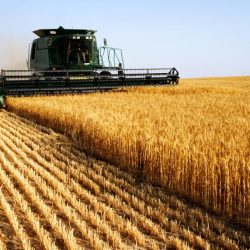Durban, KwaZulu-Natal – A powerful chorus of young voices at the Market Access Africa 2025, held this week at the Durban ICC, resounded with a singular message: Africa’s agricultural future belongs to its youth, but only if they are granted the fundamental tools to unlock it. With cutting-edge technologies like artificial intelligence (AI) and the Internet of Things (IoT) already in their grasp, these burgeoning entrepreneurs are poised to revolutionise the continent’s food systems—provided the traditional hurdles of land access, capital, and digital connectivity are finally overcome.
Africa presents a stark paradox: home to the world’s youngest population, yet still reliant on its oldest farmers. This striking demographic imbalance, however, is now being reframed by a new generation as an unparalleled opportunity. A compelling youth-led panel, a highlight of Market Access Africa, eloquently articulated this potential.
Zamokuhle Thwala, co-founder of AgriKool, brought a dose of grounded reality to the high-tech discourse. While acknowledging the allure of digital transformation, he issued a challenge to the prevailing narrative. “We talk a lot about the Fourth Industrial Revolution, but the infrastructure is still a challenge. Let’s get the fundamentals right… We seem to always be catching the wave just as it’s about to move,” Thwala cautioned. His insights underscored a critical truth: for technology to truly serve African farmers, particularly smallholders and youth, it must be built on a robust foundation. Without equitable access to land, capital, reliable connectivity, and essential knowledge, the digital divide, he warned, risks exacerbating existing inequalities rather than dismantling them.
Peering further into the future, Ntando Mniki, data analytics manager at Aizatron, painted a vivid picture of how AI and data science are unlocking radical new capabilities for farmers. “You can use AI for early disease detection. Think about smart IoT sensors to track soil moisture, plant growth, and temperature… All of that helps farmers make the right decisions. When to harvest and what nutrients to use so they can create optimal growing conditions,” Mniki explained. She emphasised that data, far from being a luxury, is a necessity, yet acknowledged the chasm between technological promise and the lived reality of many smallholder farmers.
Ipeleng Rebecca Kwadi, chairperson of the North West Youth in Agriculture and Rural Development (Yard), broadened the conversation to a continental scale. She highlighted how frameworks such as the African Continental Free Trade Area (AfCFTA) can serve as powerful levers for youth empowerment. “Young people need to understand that they should use e-commerce… that will enable them to do marketing. And they should also have confidence that their intellectual property rights will be reserved,” Kwadi urged.
Her call, particularly poignant during Youth Month, resonated deeply. Kwadi’s message to young people was unequivocal: venture beyond the traditional confines of the farm. She passionately encouraged young farmers to explore the secondary agricultural economy, including the lucrative avenues of processing, packaging, and value-adding. “Most of us are on the primary level. But attending these kinds of events gives us confidence. Young people, tap into the secondary. Don’t be afraid to comply. Just go through those documents. Get relevant people to assist you,” she advised, advocating for youth in agriculture to assert their rightful power within the entire agricultural value chain.
At its core, this powerful panel was not merely about agriculture; it was a profound discussion about agency. Panellists implored attendees to envision an Africa where its youth are not just beneficiaries of development but active architects of the continent’s future food systems.
Thwala encapsulated this vision with profound hope. With the right tools, trust, and investment in young agricultural leaders, he believes Africa’s future will be bright. “If we get it right, if we truly empower youth, we’re not just creating farmers. We’re cultivating a food-secure, thriving Africa that nourishes generations to come,” he declared.
The next chapter of African agriculture is being written now, its authors a generation of digitally savvy, entrepreneurial young people. Their collective call for stronger support from both the government and the private sector serves as a powerful reminder that the future of Africa’s food security hinges on empowering those who are ready to cultivate it.




